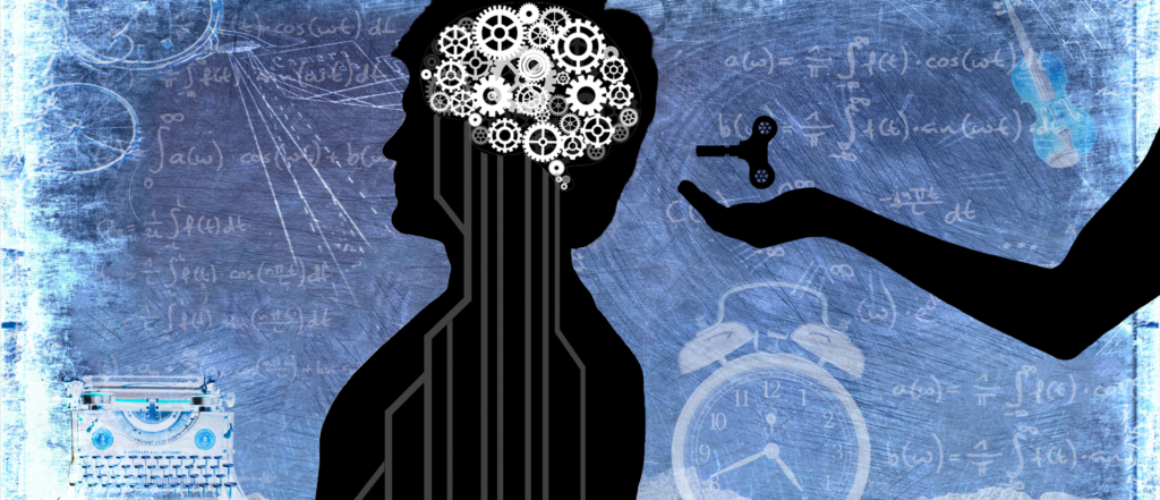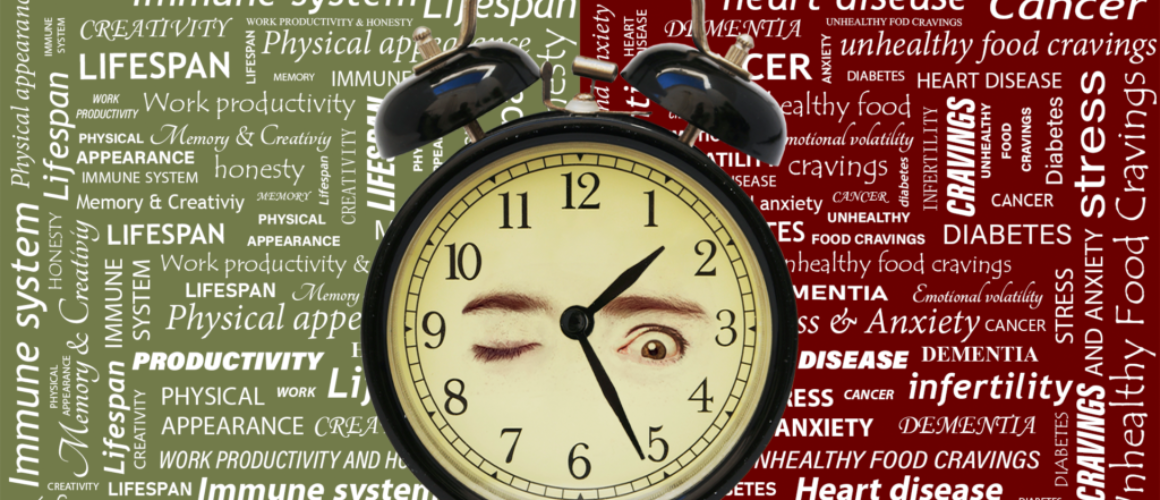Are You a Skilled Sleeper?
Take this test to discover how good you are at this critical life skill.

When I say “healthy lifestyle,” what pops into your mind? A kale smoothie? Sweaty people in a gym? A Buddhist monk in the lotus position?
These things are all good, but science is discovering that sleep also belongs right at the top of the healthy lifestyle hierarchy. Chronic sleep deprivation is shortening and diluting our lives as much as smoking and obesity.
Indeed, sleep is one of the most important skills to master for anyone who desires a long and prosperous life. Let’s see how skilled you are.
The Chronic Sleep Deprivation Test
We’ll start with two simple questions to determine whether you’re handicapping yourself with chronic sleep deprivation. Each question counts for 7 sleep deprivation points.
How many days in an average week do you wake up to the sound of an alarm?
The purpose of an alarm clock is to yank you out of sleep before your mind is rested and ready to awaken. Thus, every time you wake up with an alarm, you’re depriving yourself of the sleep you naturally require.
How many days in an average week do you feel sleepy before lunch or feel like you need caffeine to get through the day?
There’s nothing wrong with the occasional cup of coffee. It might even have some benefits. However, if you’re using coffee to mask your chronic sleep deprivation, it’s having a seriously detrimental effect on your health.
For those who don’t drink coffee, you can easily identify chronic sleep deprivation by frequent bouts of sleepiness before lunch. If you’re well-rested, you won’t be able to fall asleep before noon, even if you tried.
The verdict
So, what is your score? If you totaled more than 9 out of the possible 14 sleep deprivation points, urgent action is required. On the other hand, if you scored less than 4 out of 14, you’re probably enjoying a well-rested life. Those falling in the 4–9 range still have some work to do.
The next test will help you direct this work to all the right places.
The Sleep Opportunity Test
Sleep opportunity consists of two main factors: time in bed and sleep hygiene. A skilled sleeper focuses on both factors to give their mind and body every opportunity for sound sleep.
The seven questions below are designed to help you identify the areas where you can gain the most sleep opportunity. We’ll be working with bigger numbers here, so please keep a calculator close by.
Do you go to bed early enough?
The number of hours you spend in bed is the most important element of sleep opportunity. But we need to draw an important distinction here: weekend binge sleeping until noon is not a sign of good sleep opportunity. In fact, it indicates a serious lack of sleep opportunity during the week.
So, let’s formalize things:
- Start by defining your desired rise time. This is the time in the morning by which you must be out of bed to complete your morning routine in a stress-free manner. We’ll use 6:30 as an example.
- Now, estimate your average bedtime (accounting for both the week and the weekend). If you do some reading before dozing off, your bedtime starts when you switch off your light. For example, it might be 23:30.
- Now calculate the number of hours between your average bedtime and your desired rise time. If you take regular naps, you can add your average nap time to this total. In this example, it’s 7 hours.
- Multiply by 4 to calculate your points for this question. For example, 7 hours times 4 gives 28 points.
Does your bedroom create the perfect sleep environment?
There are four main elements to the perfect sleep environment. Let’s give each of them some points:
- Sound. If your bedroom is completely quiet or filled only with sounds of your choosing (e.g., some white noise), give yourself 2 points. The occasional disturbance from neighbors or your partner scores 1 point, and constant distracting noise gives zero points.
- Comfort. If you deeply enjoy the comfort of your bed, go ahead and award yourself 2 points. Comfort that is OK but not perfect earns you 1 point. If you frequently wake up with aches and pains, give yourself a zero.
- Light. Perfect darkness earns you 2 points. If you’re sometimes aware of some faint light, give yourself a 1. Clearly distracting light earns a zero.
- Temperature. If you sleep comfortably under your sheets for the whole night, give yourself a 2. Any mild discomfort downgrades this to a 1. You get a zero if you frequently wake up from being too hot or cold.
Now, add up these four categories to get your score out of 8. When you have that number, multiply it by 2 to calculate your sleep opportunity points. For example, if you scored 5 out of 8, you would earn 5 x 2 = 10 points.
What about your sleep consistency?
Consistency is often the first thing you read in sleep hygiene articles. We’ll quantify consistency as the number of days in the average week you get out of bed within 30 minutes of your desired rise time defined earlier.
So, think back over your previous week. Start with 7 points and subtract one point for every day that you got up more than 30 minutes before or after your targeted rise time.
Now take the resulting number and multiply it by 2. For example, if you got up within 30 minutes of your desired rise time 4 times in the past week, your score would be 4 x 2 = 8 points.
Do you practice healthy eating for healthy sleep?
Poor eating habits, both in terms of quality and quantity, can negatively affect your sleep, both in terms of quality and quantity. In my case, this factor was significantly more important than sleep consistency.
So, think back over your previous week. How many days could you genuinely feel proud of your healthy eating habits? Give yourself a point for each of those days. Then multiply the number by 2 to get your score.
Is your sleep compromised by coffee or alcohol?
Drinking coffee and alcohol in the afternoon or evening can seriously disrupt your sleep. Coffee will make it difficult to fall asleep and alcohol will result in poor sleep quality.
So, let’s put some numbers on it:
- If you never drink coffee after lunch and only have an occasional light drink at special events, you can award yourself a perfect 10.
- A habitual glass of wine with dinner or coffee after lunch scores a 5.
- Signs of addiction to either alcohol or coffee score a zero.
Feel free to interpolate if you fall somewhere between these three points. This time there’s no added math. Just add your score to the previous ones.
Can you go to bed with a good conscience?
What we’re looking for here is that tired-but-satisfied feeling you get after a day of doing all the good you can reasonably expect of yourself. This mental state is great for high-quality sleep.
So, how many days in the past week have given you this special feeling? Give yourself a point for each of those days and tally up your score for this category.
Do you practice a wind-down ritual?
Taking 30–60 minutes at the end of the day to decouple from all your screens and just wind down can increase your sleep quality. It helps to have a fixed ritual containing typical things like yoga, journaling, and reading.
Do you practice such a ritual? If so, how many days in the past week did you complete your wind-down routine. Each day earns you a point.
Let’s do the math
If you add up all these numbers, you’ll get your score out of 100. Here are the results achieved by our fictitious example character:
- Sleep duration: 7 hours times 4 = 28 points.
- Bedroom score: 5 points times 2 = 10 points.
- Eating habits: 4 good days per week times 2 = 8 points.
- Sleep consistency: 4 consistent days times 2 = 8 points.
- Coffee and alcohol: a habitual cup of coffee after lunch = 5 points.
- Good conscience: 5 good days per week = 5 points.
- Evening ritual: no ritual yet = 0 points.
After all this math, this person scores 64 out of 100 (64%).
What does your score mean?
Here are three categories for interpreting your score:
- Over 90%. Your mind and body certainly can’t complain that they don’t get enough sleep opportunity. If you’re a 90% sleeper, but still scored high in the earlier Chronic Sleep Deprivation Test, please consult a sleep specialist to see if there is a medical reason for your poor sleep.
- 70–90%. This is OK, but you can do better. Go back over your scores for each question, see where you lost the most points, and take action.
- Below 70%. If you’re in this category (like our example above), you’re handing yourself a serious handicap in life. Make improved sleep opportunity a priority and see what happens.
Sleep well!
Compared to nutrition, exercise, and stress, excellent sleep opportunity is a relatively simple health habit to implement. Not only that; it’s also vitally important for your long-term health and performance! Thus, better sleep is an excellent 80/20 lifestyle hack.
So, let’s all stop handicapping ourselves with chronic sleep deprivation and give ourselves the opportunity to make the world a better place 🙂














